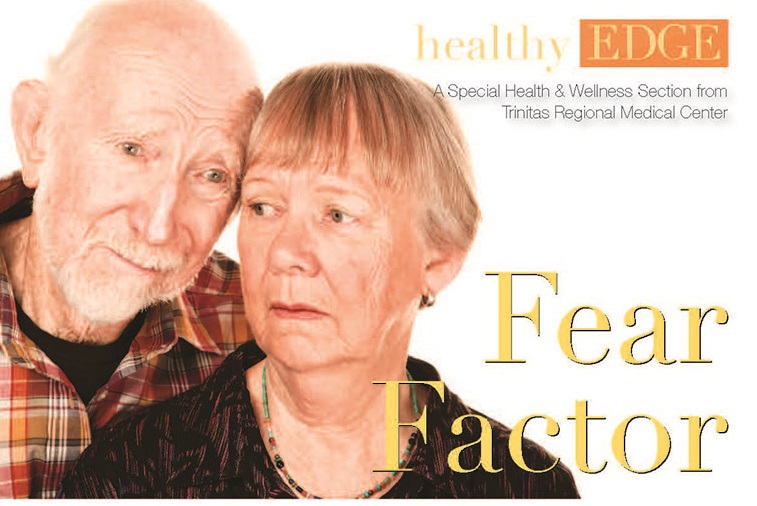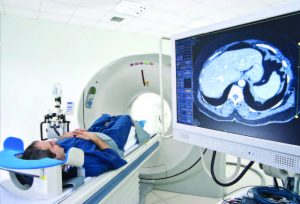
The stigma attached to Alzheimer’s—and a dearth of clinical trial volunteers—may be slowing the development of a breakthrough drug.
When I was doing my post-doctoral fellowship, I was in the room with a neurologist who gave a patient an Alzheimer’s diagnosis and then left. I think the family forgot I was still in the room. The man turned to his wife and said, “We really need smarter people working on this problem.”
Well, in the two-plus decades since, there have been a lot of smart people working on it, and progress has been made. New drugs have come on the market: Cognex in 1993, Aricept in 1996, Exelon in 2000, Razadyne in 2001, and Namenda in 2003. In 2011, for the first time in 27 years, a revision of the initially proposed 1986 consensus criteria for Alzheimer’s Disease were established, which incorporate all of the data and technological and clinical advances that have been amassed over the past several decades of research. Since we now know that people suffering from Alzheimer’s have probably had plaques and tangles developing in their brains for decades, the emphasis on early intervention is greater than ever.
We are currently in a better position to identify pre-symptomatic patients so that, if we had a disease-modifying medication, we could catch people early and possibly prevent the disease from progressing. There are a lot of companies looking for that breakthrough Alzheimer’s drug, which is why clinical trials are so important.
Ironically, the biggest obstacle right now in finding a cure for Alzheimer’s Disease may be the lack of participants in the studies being run on these new drugs and therapies.
Pharmaceutical companies are way behind in recruiting volunteers. Timelines for enrolling subjects are usually not met. This means critical data is coming out too slowly. We have not had an investigational Alzheimer’s drug get past Phase III in years.
WHO CAN PARTICIPATE?
The profile of a trial participant ranges from someone with cognitive impairment or concern to individuals who have received an Alzheimer’s diagnosis but are otherwise healthy. About half of the participants in the trials we run come through our clinic, the Cognitive and Research Center of New Jersey; these are people with whom we have already established trust and rapport. Others are referred by groups of neurologists, internists and gerontologists. We also get participants as a result of the public outreach I do personally. I am a big advocate of Alzheimer’s education and do a lot of speaking at churches, synagogues, senior centers, and other venues.
So why the lack of participants? Some are afraid that they’re agreeing to be “guinea pigs” for drug companies. That’s a valid objection, but people with this objection may not appreciate that these trials are very highly regulated by the government. It is very hard for a drug company to start a clinical trial. The FDA and other regulatory agencies have to be convinced that the potential benefits outweigh any risk; patient safety is concern number-one. Each trial has a set of strict criteria, and always errs on the side of safety.

www.istockphoto.com
There are other factors that make it difficult for clinics to find an adequate number of volunteers. Alzheimer’s trials have a high rate of screening failure. Even here—where we are highly specialized—the screening failure rate can range up to 50% after we’ve done urine, blood and EKG testing. Sometimes, people don’t meet criteria for a study because of preexisting medical conditions or medication regimens. There are always lists of medications that can’t be taken with the drug that’s being tested, and the patient can’t stop taking a particular medication.

www.istockphoto.com
Something else that impacts Alzheimer’s trials is that there will be a “study partner” involved. This is someone who knows the patient well and is in close enough proximity to acknowledge that the medication is being taken, and who can generate qualitative information, such as new symptoms, the level of caretaker burden, the patient’s mood and daily living skills—and just answering the question How are they doing? This is usually an immediate family member, but can also be a close friend. Without a committed study partner, it is unlikely an individual would be able to participate in an Alzheimer’s (or even a cognitive impairment) trial.
Finally, there is the stigma associated with Alzheimer’s, which I hope is changing. People think it’s a mental illness instead of a progressive medical disease. That could well be at the root of the recruiting problem pharmaceutical companies are experiencing in their trials. My perception is that a lot of people delay getting a diagnosis, mostly out of fear or perhaps denial. Incredibly, in fact, more than half the people who have Alzheimer’s never actually receive a diagnosis—even as they are being prescribed medications such as Aricept.
TRIAL BENEFITS
Among the major benefits of participating in a clinical trial is access to some of the better technology that is being developed. There are a number of procedures a patient’s insurance might not cover, including amyloid PET scans, which are very expensive. Thanks to this technology, we can actually detect microscopic changes in the brain that can give us a more concrete diagnosis.
All of the assessments a patient receives during a study are free. And sometimes there is a stipend for patients and their study partners.
Perhaps the most compelling reason to get involved in an Alzheimer’s study is the fact that people who are in clinical trials do better than people who are not—even those who are in the placebo group. Receiving attention from four or five specialists, talking about your condition, and receiving constant feedback is very therapeutic for the patient and for the study partner. In fact, most people who have completed one trial here want to get right into another.
The length of a clinical trial can vary from months to years. The length of each visit could take 45 minutes or four to five hours depending on what kind of evaluations are being done. Typically the clinic visits are more frequent at the beginning of a trial so that we can establish eligibility and collect baseline measures.
Whether volunteering for a clinical trial is appealing or not, families facing the prospect of a loved one with Alzheimer’s Disease need to take action. This disease is hard to deal with on your own, without support. The longer a family waits for a diagnosis, the sooner they’ll find themselves dealing with things in disaster mode.
The Alzheimer’s Disease Association estimates that 5.3 million Americans suffer from Alzheimer’s, and that number will continue to rise as the Baby Boomers age.
Unfortunately, right now less than half of these individuals are actually being told they have it. They don’t want to hear the diagnosis. So large numbers of patients and their families are suffering through the disease with no help.
They need to be educated to plan for the future and understand changes in behavior, and to prepare for the practical and emotional issues of care they will face. When we conduct our initial neuropsychological evaluations, everyone leaves with a folder containing information about relevant resources. People may be hesitant to use those resources initially, but they are good to have on file. Also, individuals who get linked with resources fare much better than people who put off being evaluated.

www.istockphoto.com
The first step for many patients and their families is to deal with the overwhelming idea that once you have Alzheimer’s, there’s nothing anyone can do. The fact is there are things we can do. And the trials that clinics like ours are conducting hold great promise that soon we’ll be able to do much, much more.
Editor’s Note: Michelle Papka is a neuropsychologist specializing in Alzheimer’s Disease and mild cognitive impairment. For more information log onto thecrcnj.com or email info@thecrcnj.com.





